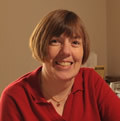
The details are fuzzy now, but not the event. I was 9 years old and had finished my music lesson at a local dance/music studio. With time to spare before Dad picked us up, I went into the studio’s small two-way mirror room so I could watch my sister’s ballet class.
Another music teacher, an older man who sometimes used the room for the lessons he taught, joined me. We chatted for a while, standing side by side as we spied on the ballet lesson. I thought the two-way mirror was cool. I could see the dancers; they couldn’t see me.
- Related article
- Far afield: JoePa’s hollow pedestal
At some point, the music teacher stepped back and closed the room’s door, commenting that we could see the dancers better if our side were dark. He came back to my side, closer this time, and we both laughed at the ungainly footwork of some of the would-be ballerinas.
I don’t remember his name. I don’t remember much of what he looked like. But I do remember him reaching over and shoving his hand down the back of my shorts, his greedy fingers toying with what I called my “private parts.” And I do remember my body giving a small, panicked jerk, even as I stood there frozen.
It was over in a flash. As he tried to pull me closer, I finally got over my shock and wriggled free. I headed from the room to the studio lobby, where I sat in a chair, gulping for air, waiting for my sister’s class to end and for Dad to show up. I didn’t say a word to anyone.
Later that day, as I finished drying the dinner dishes, I snagged my mom as she walked through the kitchen. I was literally shaking. Should I tell her? Could I tell her? What would she think? Was it my fault? Did I do something wrong?
In a rush, looking at the floor, I told her what had happened.
A day later, Mom told me she had reported the event to the owners of the studio. They had immediately fired the music teacher and — here her voice softened even more — wanted to know if I would be willing to talk to the police. I didn’t have to, Mom assured me, but the studio owners would like me to do so.
It is here that my adult self, long removed from that moment when my world no longer felt safe, cringes at the memory. Because I said no. I understand now where that “no” came from — the same place it’s been coming from for eons; the place where a victim of sexual abuse, no matter how minor the action, feels like they were somehow to blame. And it’s embarrassing and scary and all those mixed-up things that mean you say “no” rather than going public with that shame.
The bad man disappeared from the studio, and I never heard any more about him. I eventually came to be thankful that his groping went no further, that I was able to pull away, that I told my mom and she told the studio owners and they fired the man.
A few years later, when I was 15 or 16 years old, I visited an art supply store. As I walked around a corner, I spotted the old music teacher, paging through sheet music. I froze. Then, quietly, hoping he wouldn’t look my way, I backed out of the store and fled.
My teen-age self was taken aback by that reaction. Why did the sight of him terrify me so much? I even smiled to myself, realizing I could have easily pummeled the bent, aging man. But I also was angry, realizing his attempt to molest me still had so much power over me, could still trigger such fear.
These past months, as I’ve heard and read about Penn State and the adults who looked the other way, I think of the bad man and my mother who called the studio owners and the studio owners who wanted me to call the cops.
I’ve tried to understand why the Penn State people didn’t call the cops. I was protecting my vulnerable self, a self scared and uncertain and unwilling to share what I felt was my shame in front of a bunch of policemen. I’ve forgiven myself for saying no to calling the cops, even though I wish I had, even though to this day I retain a stomach-churning fear that the man went on to hurt other little girls.
The Penn State folks were protecting their identities, too, I guess. In an odd way, I understand that. But that, I cannot forgive.
Carol Schaal is managing editor of Notre Dame Magazine. Email her at schaal.2@nd.edu.